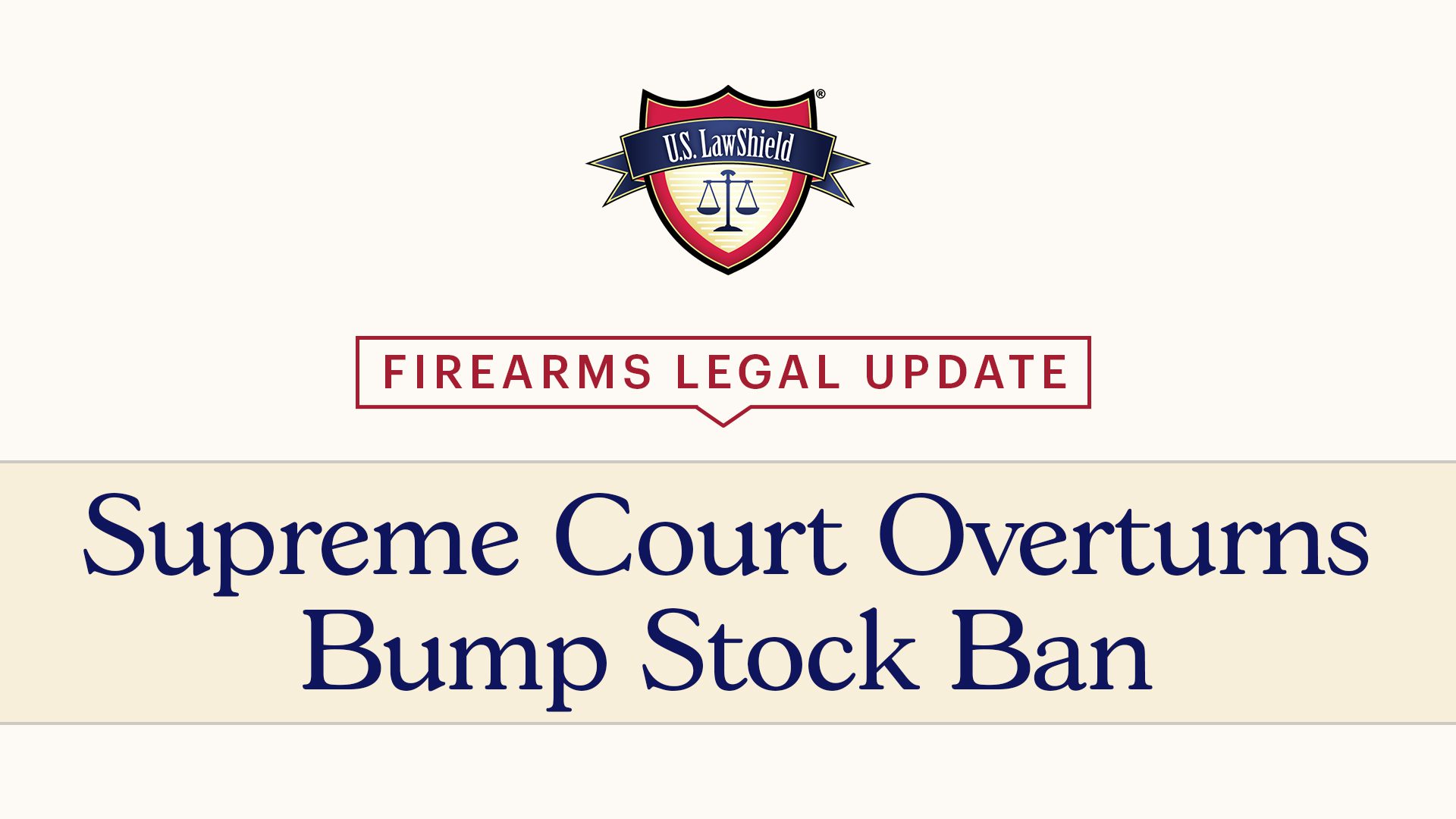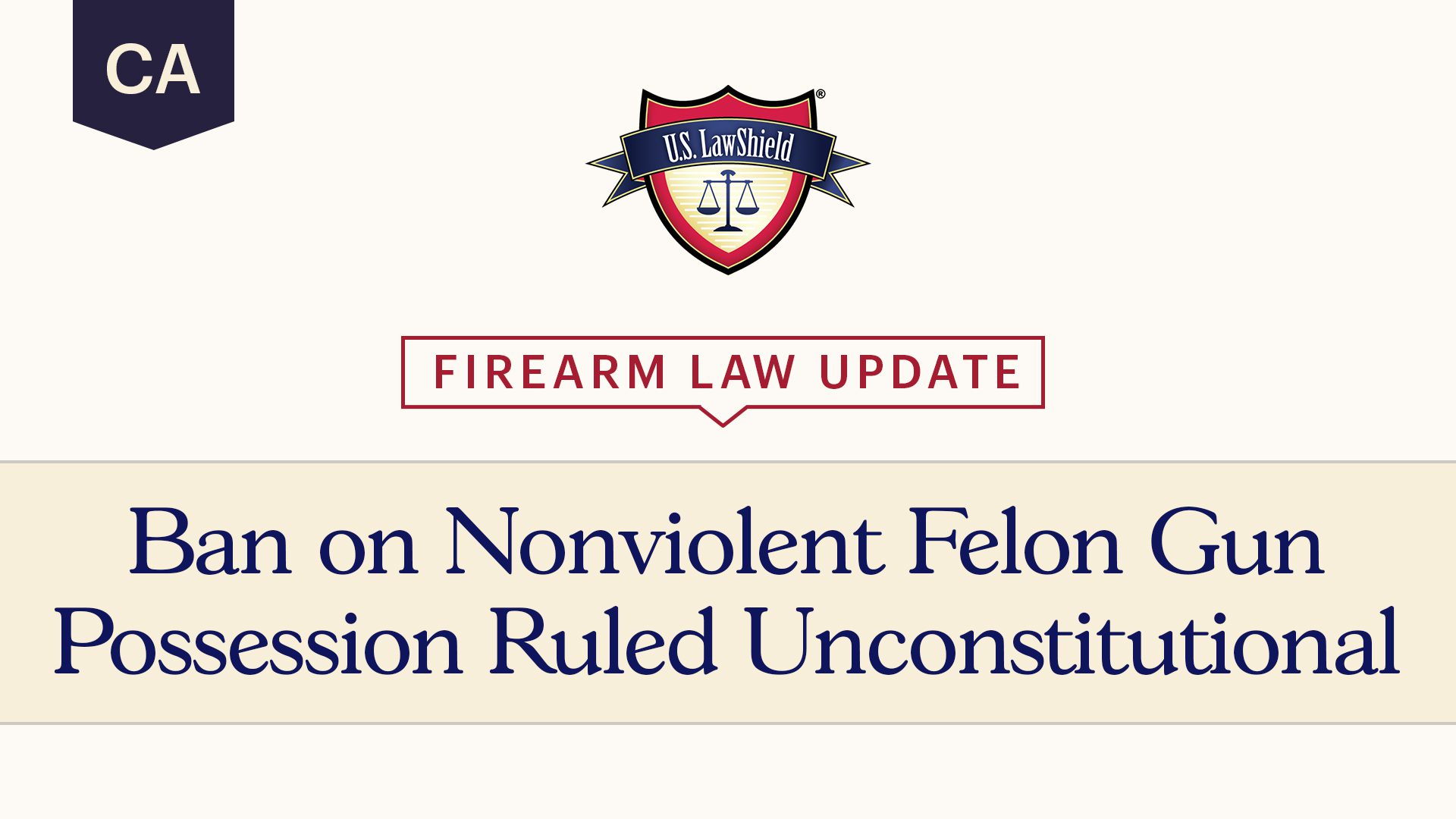
As a gun owner, you might be wondering if you should have some form of self-defense coverage. Whether you’ve been debating the pros and cons of getting coverage or are considering a new plan, you’ve come to the right place. Let’s consider the most common reasons you might need or want self-defense coverage.
What Is Self-Defense Coverage?
“Self-defense coverage” gives you access to a network of qualified attorneys in case of a self-defense incident. Generally speaking, it’s membership in an organization that facilitates connection between you and a criminal defense attorney and helps offset some of the expenses. Some self-defense coverage organizations assign an attorney to you while others have you choose your own, although they might supply a list of recommendations. To keep it simple, we’ll refer to it as self-defense coverage in this article.
What Is Carry Coverage?
Usually, this coverage gives law-abiding gun owners access to qualified criminal defense attorneys, phone numbers for emergency and non-emergency calls, and variable levels of financial coverage related to legal fees. The specific details depend on the organization and coverage you select. This is also sometimes referred to as concealed carry coverage or home-defense coverage.
Do I Need Self-Defense Coverage If I Have a Carry Permit?
Having a carry permit doesn’t mean you’re legally required to have self-defense coverage. Whether or not to get coverage is a personal choice, but it’s a decision that’s easier to make when you have all the facts.
It’s worth mentioning that the city of San José, California, is the first place in the country to pass a law requiring gun liability coverage for gun owners, which isn’t the same thing as self-defense coverage. According to the city government website:
San José will become the first city in the nation to require gun owners to pay a yearly fee and carry liability insurance. Fees shall be levied and collected by a non-profit foundation established to distribute all fee revenue to community-based programs focused on reducing gun violence.
Liability insurance, like what will be required in San José, isn’t the same as carry coverage and the two shouldn’t be confused. Gun owner liability coverage often only provides coverage for unintentional acts, such as negligence with a firearm, but it generally does not cover incidents which involve the lawful, intentional use of a firearm in self-defense.
Why Do I Need Self-Defense Coverage?
Having self-defense coverage can be a wise choice for numerous reasons, including:
- Being prepared prior to a self-defense scenario gives you peace of mind
- Protection from the significant financial impact of certain legal fees
- Access to educational information on self-defense, home-defense, and concealed carry issues
- The ability to call and ask qualified attorneys non-emergency questions about self-defense and firearms law
Is Self-Defense Coverage Expensive?
How much money it costs to get self-defense coverage depends on the plan. The more all-encompassing the plan, the greater the cost, but can you really put a price on peace of mind?
It’s true that you may never need the coverage but if you do, it’s far better to have access to an attorney and a plan in place. Otherwise, your family and friends could end up scrambling to locate a qualified criminal defense attorney through an internet search, and then having to come up with the money to retain the attorney’s services.
It costs less money to pay to have coverage in place than it does to come up with thousands of dollars at a moment’s notice in the aftermath of a self-defense shooting.
Will Homeowners Insurance Cover Self-Defense?
Homeowners insurance doesn’t typically cover self-defense. Before assuming your existing insurance policy covers home or self-defense, check the company’s policy. Generally, the insurance you carry for your residence only covers legal and medical fees related to accidental injury, meaning it excludes home and self-defense situations. Do your homework. It’s important to know the specifics of your policies.
Enjoying this content? Find out how you can get more sent straight to your inbox.
Do Concealed Carriers Need Self-Defense Coverage?
Having access to qualified attorneys is a great idea whether you carry your gun for self-defense purposes or not. Maybe you keep your gun at home for home-defense use, or maybe you mostly hunt. All gun owners can benefit from having self-defense coverage regardless of whether they concealed carry.
Do People Who Don’t Own Guns Need Self-Defense Coverage?
This is a personal choice. Even if you’re not a gun owner, consider what would happen if you ever had to defend yourself in hand-to-hand combat or with a stick, a knife, a rock, a frying pan, or any other object. It’s more than likely you’ll be taken into custody, and your side of the story will be judged. You may feel you’re in the right, but the legal system ultimately decides how justice will be served.
Many people don’t realize that self-defense law is one of admittance and avoidance, meaning that you must admit your conduct and then prove that you acted in self-defense. This is a scenario when you would want self-defense coverage in place so that you have an experienced attorney to represent you through the entirety of your case, and to be assured that you won’t end up with high legal fees in the end.
What Kind of Lawyer Do I Need?
It can be confusing to realize a criminal defense attorney is what you’d need in case of a self-defense situation. After all, you’re not a criminal, so why would you need a lawyer who practices criminal defense?
Criminal defense simply refers to the field that handles alleged criminal incidents, which may include events involving use of force and self-defense. Yes, they also handle things that are truly criminal in nature, but the specific legal practice area covers it all. One of the reasons for that is because your claim of self-defense will be necessary if there are criminal allegations or charges. To defend yourself properly and fully from criminal allegations or charges, you need a good criminal defense attorney. For the most part, your typical family lawyer or tax attorney aren’t as well-qualified for this purpose.
When Should I Get Self-Defense Coverage?
To be covered in a self-defense situation, you need to have coverage already in place. This is true for all companies. Just as with any service, your plan and policies must exist to be used. That means signing up for coverage sooner rather than later. After all, you can’t control the time or place you might be attacked and given no choice but to use force, up to and including lethal force, to defend yourself. Only the bad guys control that.
What Does Self-Defense Coverage Include?
The details of what specific policies cover in cases of self-defense depend on the plan. Different companies have various levels of plans in place; some companies use add-ons to a basic package while others have a variety of tiers of coverage. Take the time to learn about the policy you’re considering. Read everything and ask questions as needed.
Something to be aware of is that most policies don’t automatically cover a spouse or minor child. For someone to be covered under a self-defense coverage plan, they need to be signed up as a member. The plan covers the person engaging in self-defense, not the property, location, or vehicle. Self-defense coverage provides the resources necessary for assistance centered around a self-defense incident, but it generally doesn’t “insure” anyone or anything the way car insurance covers a vehicle.
The fine print of a self-defense coverage plan matters. Always read documents in their entirety before signing. There are a lot of options in the industry for self-defense coverage and it’s wise to take the time to consider what’s best for you and your family.
What Else Should I Know About Self-Defense Coverage?
If you’re ever in a situation where you have no choice but to use force to defend yourself, you may or may not face criminal charges. Simply because something seems like a clear case of self-defense to you—or to the public—doesn’t mean you won’t be charged with a crime.
Even if you aren’t charged, or if you’re charged but those charges are dropped, or you’re found not guilty, civil court can still be a problem. Civil lawsuits are different than criminal charges brought in criminal court and are something to keep in mind as a gun owner. Being cleared of one doesn’t automatically protect you from the other. Coverage should include civil matters related to self-defense too, not only criminal ones.
The bottom line is that although getting self-defense coverage is a personal choice, it’s something to seriously consider having as a law-abiding gun owner. No, there’s generally no legal requirement to have it, but having a plan in place gives you peace of mind and provides protection from the staggering financial cost of attorneys’ fees and other legal fees.
Owning firearms for personal defense can be compared to having a fire extinguisher in that you hope you never need it, but it’s a tool you want to have ready. Self-defense coverage is similar. Better to have a plan ready in case you need it than be caught off-guard and ill-prepared.
Those who have U.S. LawShield®, which provides Legal Defense for Self Defense®, have access to qualified attorneys, zero attorneys’ fees for covered events, and more. Learn the benefits of joining our community of responsible self-defenders.
Your Protection Starts Here!
The information provided in this publication is intended to provide general information to individuals and is not legal advice. The information included in this publication may not be quoted or referred to in any other publication without the prior written consent of U.S. LawShield, to be given or withheld at our discretion. The information is not a substitute for, and does not replace the advice or representation of a licensed attorney. We strive to ensure the information included in this publication is accurate and current, however, no claim is made to the accuracy of the information and we are not responsible for any consequences that may result from the use of information in this publication. The use of this publication does not create an attorney-client relationship between U.S. LawShield, any independent program attorney, and any individual.





Leave A Comment